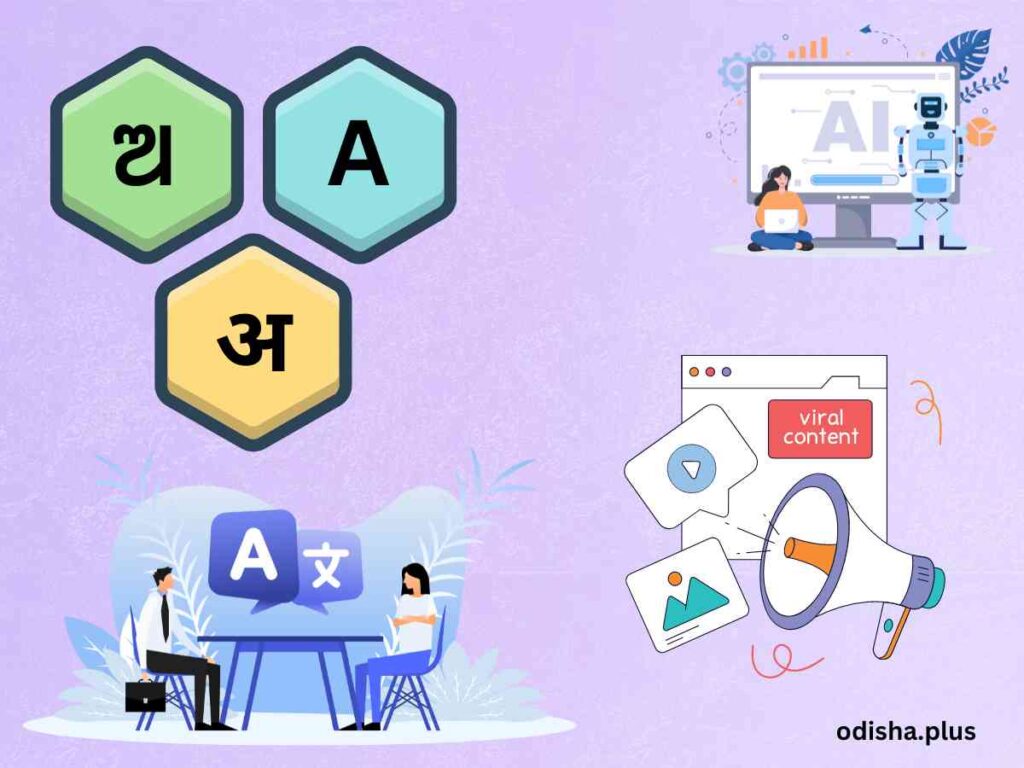The importance and scope of translation & content localization have expanded significantly in the digital age
Pranati Parida

In the era of internet, digital media and globalization, the importance of translation and content localization has reached unprecedented heights. No longer confined to literature and advertising, translation has emerged as a vital service across diverse sectors, bridging linguistic and geographical divides.
As the world becomes increasingly interconnected, the demand for professional translators, content writers and localization specialists continues to soar.
Global Demand for Translators
The demand for translators is experiencing exponential growth, driven by the proliferation of web media, social media and mobile applications. According to a report by the Market Research Future, the global translation market is projected to reach USD 56.5 billion by 2025, growing at a CAGR of 12.5%. This surge in demand is fueled by:
- Globalization: Businesses expanding into new markets require localized content to connect with customers.
- Digitalization: The internet and social media have created an immense need for translated content.
- E-commerce: Online shopping platforms require product descriptions, user manuals and customer support in multiple languages.
Jobs in Translation and Localization
The translation and localization market offers a wide range of job opportunities, including:
- Translators: Specializing in various languages and domains (e.g., medical, technical, financial).
- Content Writers: Creating original content for diverse industries and languages.
- Localization Specialists: Adapting content for specific regions, considering cultural nuances.
- Interpreters: Providing real-time language interpretation services.
- Language Validators: Ensuring translation accuracy and cultural relevance.
- Translation Memory Specialists: Managing translation memory software.
- Project Managers: Overseeing translation and localization projects.
- Subtitlers: Creating subtitles for videos and multimedia content.
Essential Skills for Translation and Localization
To excel in this field, professionals require:
- Language Proficiency: Fluency in multiple languages (say the source and target languages).
- Translation Skills: Understanding of translation principles and techniques.
- Domain Knowledge: Familiarity with specific industries (e.g., medical, financial, technology etc.).
- Technical skills: Proficiency in translation memory software, CAT tools and localization platforms.
- Cultural Competence: Understanding of cultural nuances and regional differences.
- Communication Skills: Effective collaboration with clients and team members.
Freelance Opportunities and Work-from-Home Model
Translation offers the flexibility to work as a freelancer, ideal for:
- Professionals: Transitioning to a new career or seeking flexible work arrangements.
- Mid-career Professionals: Seeking a change or additional income stream.
- Homemakers: Supplementing income while managing family responsibilities.
Translation is no longer limited to the professionals having degree in language and literature. The industry welcomes skilled individuals from diverse sectors and subjects, having capacity to handle translating medical research, clinical trials and healthcare content; Translating financial reports, investment documents, and market analysis; Translating research papers, academic journals and scientific articles; and Translating business plans, marketing materials, and corporate communications etc.
The Impact of AI and Google Translate
While AI-powered translation tools like Google Translate is emerging as a long-term solution, human translators and content validators still remain essential in the sector especially for:
- Contextual Understanding: AI may struggle with nuanced cultural references or context-specific translations.
- Specialized Knowledge: Human expertise is required for complex domains like medicine, law and finance.
- Quality Assurance: Human validators ensure translation accuracy and cultural relevance.
India’s diverse linguistic landscape and growing digital economy make it an attractive market for content creators, writers, translators, and localization specialists. The country has 22 officially recognized languages and over 1,600 dialects. With an increasing internet penetration and smartphone adoption, India is going to be a preferred destination for outsourcing translation and localization services.
So, the importance and scope of translation and content localization have expanded significantly in the digital age. As globalization and digitalization continue to shape the world, the demand for skilled translators, content writers, validators and localization specialists will only continue to grow, offering exciting opportunities for professionals from diverse backgrounds.
(The author is a senior content writer, language validator and localization specialist, and the co-founder of a startup media venture ODICAST Digital LLP headquartered at Bhubaneswar, India. Views expressed are personal.)
#Translation #ContentLocalization #LanguageValidation #Transcription #Transcreation #Interpretation #Subtitling #ContentDevelopment #LocalizationServices




























